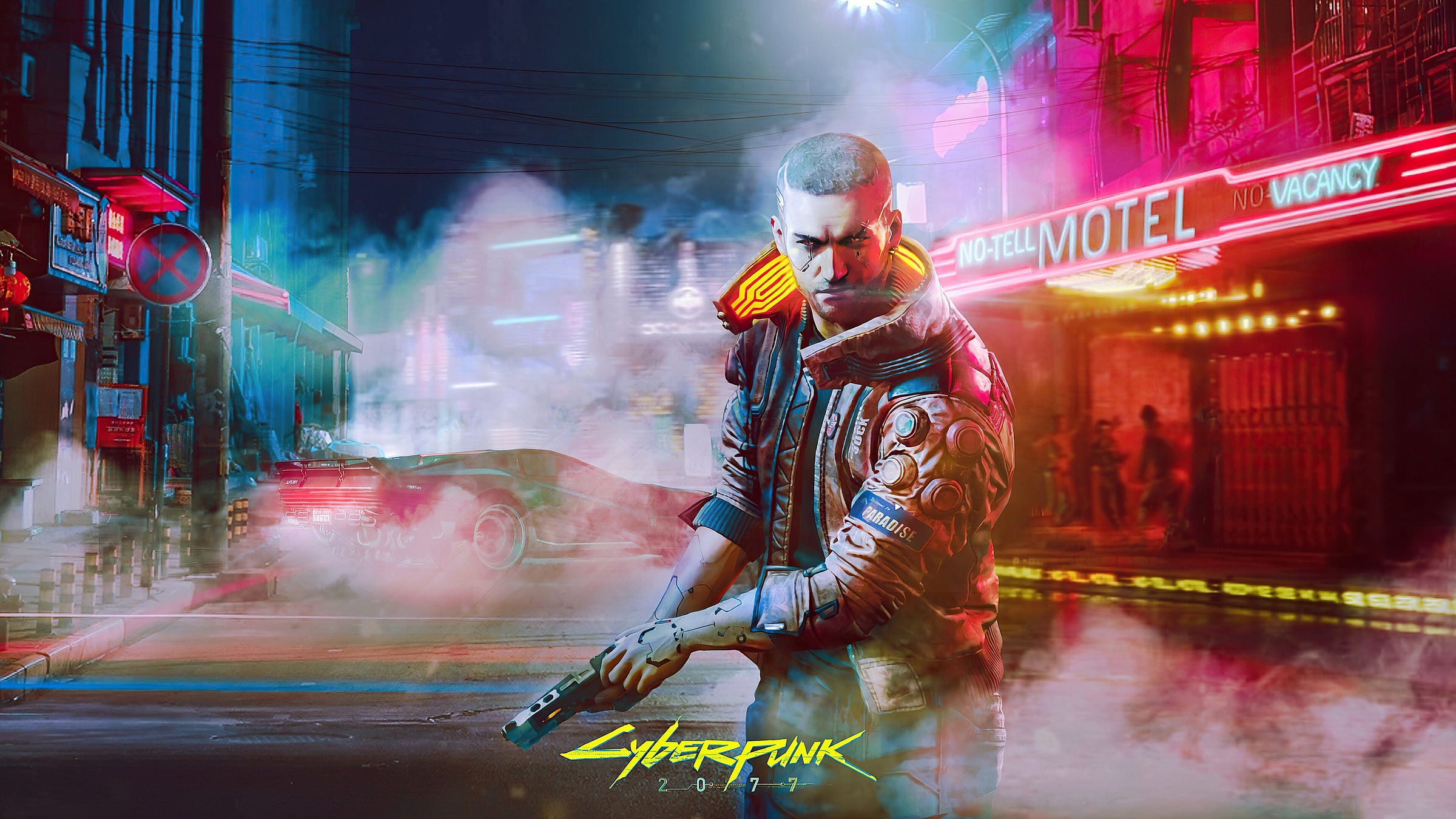The Primal Appeal of Dystopia
Nationalist Perspectives on Modernity's Spiritual Wasteland Seen Through the Lens of Cyberpunk's Night City.
I finally got around to playing Cyberpunk 2077, and I couldn't stop thinking about the peculiar contradiction in how we engage with dystopian environments in modern entertainment. Here was a digital realm where megacorporations reign supreme over a degenerate, multicultural metropolis drowning in neon and vice. On the surface, such a setting represents everything a nationalist worldview rejects. Yet, paradoxically, I found an undeniable allure to this chaotic world—not for its moral bankruptcy, but for something more fundamental it awakened within me.
What draws us to these harsh digital landscapes? It is the raw, unfiltered experience of existence—where each day begins as an adventure, where survival itself becomes meaningful, and where one's actions have immediate, tangible consequences. In Night City, there are no safety nets, no bureaucratic systems to catch you when you fall. Your survival depends entirely on your wits, strength, and determination.
Evola's Vision and the Modern Spiritual Desert
Julius Evola, in his work "Revolt Against the Modern World," spoke of the "differentiated man" who stands against the homogenizing forces of modernity. He lamented how modern civilization had created a spiritual desert where true challenges—and thus true meaning—had been systematically removed from human experience. Is this not precisely what we experience in our comfortable Western democracies? In Sweden, as elsewhere in the developed world, we have constructed elaborate systems that, while providing material security, have simultaneously stripped away the vital tensions that once gave life its vigor and purpose.
The modern progressive state, with its obsession with safety, equality, and comfort, has engineered a society where the primal elements of human experience—danger, struggle, hierarchy, and conquest—have been pathologized and suppressed. Yet these elements are not merely atavistic remnants of a barbaric past; they are essential components of a complete human existence.
The Return to Primal Existence
When we immerse ourselves in these digital dystopias, we unconsciously recognize what Evola might describe as a "world of Tradition"—not in its moral or cultural aspects, but in its fundamental structure. In Night City, despite its degeneracy, a man must still prove his worth. Merit determines survival. Actions have consequences. The artificial barriers between action and outcome—so carefully constructed in our modern bureaucratic societies—are stripped away.
This speaks to a profound truth: the human spirit was not designed for the cotton-wrapped existence of the modern welfare state. We were forged through millennia of struggle, where every day presented challenges that gave meaning and purpose to existence. Our ancestors did not wake to the numbing comfort of guaranteed provision; they rose to the call of necessary action. They hunted, built, defended, and conquered—and in doing so, they lived completely.
Is it any wonder, then, that we find ourselves drawn to these digital realms where something of that primal experience has been preserved? We sense, perhaps unconsciously, that something essential has been lost in our progressive march toward universal security and comfort. The price of our modern paradise has been the sacrifice of purpose—that driving force that once gave human existence its transcendent meaning.
Modernism promised liberation but delivered spiritual imprisonment. By removing the essential tensions of human existence—struggle, danger, hierarchy, and consequence—it has created societies where people enjoy unprecedented material comfort while simultaneously suffering epidemic levels of depression, anxiety, and existential crisis. We have gained security but lost our souls.
When we step into these digital dystopias, we briefly recapture that lost element of our humanity. We reconnect with the fundamental truth that to live completely is to live dangerously—to face each day as an adventure where outcomes are uncertain but meaningful. It is not the moral decay of these settings that attracts us, but rather the return to a world where human action still matters, where meaning has not been bureaucratized out of existence.
The Digital Revolt Against Modernity
Perhaps, then, our attraction to these digital realms is not mere entertainment but a spiritual revolt—an unconscious recognition that the nationalist critique of modernism touches something profound about human nature itself. It suggests that beneath our conditioned acceptance of progressive values lies a deeper yearning for the world we have lost—a world where danger and meaning walked hand in hand, and where the human spirit found its completion not in comfort, but in conquest.
This powerful force of escapism reveals a fundamental truth about our modern condition. When millions spend countless hours immersed in Night City's brutal landscape, we are witnessing not merely recreation but a collective pilgrimage away from the spiritual emptiness of our sterilized existence. The intensity with which we flee into these digital frontiers speaks to the magnitude of what modernity has stolen from us. We have traded the authentic struggle that defined our ancestors for an artificial peace that leaves our souls malnourished.
Consider the paradox: in a world ostensibly designed for human flourishing, we increasingly seek fulfillment in worlds explicitly designed as dystopias. This is no mere coincidence, but rather evidence of modernism's spiritual failure. The escapist impulse that drives us into these digital realms is both symptom and indictment—it reveals the hollow core of progressive promises and the persistent, unconquerable nature of authentic human longing. Our national identities and traditional ways of being cannot be engineered away without creating a void that demands filling.
When we step into Night City, we momentarily reclaim something essential—the primal thrill of existence unbound by safety nets and bureaucratic management. The digital persona we inhabit faces genuine stakes and meaningful choices. In this brutal electronic landscape, we find echoes of what our ancestors knew: that a life without struggle is not a paradise but a prison, that meaning emerges precisely from the dangers we face and overcome. The nationalist perspective recognizes this fundamental truth, that a people separated from the essential tensions that forged their character will inevitably seek these tensions elsewhere, even in simulated form.
■



